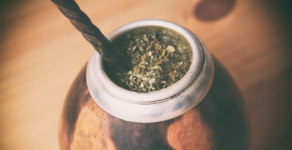The problem with painkillers is the way your body adapts to them. Common opioids such as Oxycotin and morphine can fight pain effectively for the first few doses but as your body gets used to them the dosage needs to be increased. For most patients this exponentially rising dosage of painkillers is extremely harmful.
Painkillers are also, as is now well-known, highly addictive. Opioid addiction in America is at record highs. Nearly 20 million people suffer from some form of opioid or substance abuse. 78 people die because of it everyday.
The holy grail of painkillers, therefore, is a drug that has a mild effect, doesn’t induce euphoria, doesn’t entail a high risk of addiction, and won’t cause withdrawal or respiratory slowdown if stopped. Of course, the drug would also need to be effective at reducing pain.
A drug like this might sound too good to be true, but some scientists believe they may have finally found it – in the form of a powerful supplement called Kratom.
Extracted from the Mitragyna speciosa tree and found mostly in Southeast Asia, Kratom has become popular as a legal high in many parts of the world. Natives have traditionally used the leaves to treat pain and diarrhea, but certain countries have banned the drug for its effects on the nervous system. Kratom is supposed to have a jolting effect on the nerves, much like a high dose of caffeine.
Research, however, suggests the drug is not as dangerous as it seems. The painkilling effects are well documented. The chemical and molecular structure of Kratom is similar to many mainstream opioids. Studies suggest the drug has an effect on the way your body experiences pain, but doesn’t affect any other parts of the nervous system negatively. In other words, the pain relief doesn’t come with fatal side-effects.
Scientists are excited about the implications of these studies. It seems a better, more refined painkiller may be on the horizon. The trouble seems to be the way regulators treat Kratom at the moment. The DEA plans to place the drug in a category known as Schedule I. Schedule I drug are extremely tightly regulated. The group includes marijuana, ecstasy, and heroin. Scientists who wish to study these drugs must apply for a license first. Approved licenses are rare.
The DEA believes regulating the drug is justified. The department has linked the use of Kratom to 15 deaths between 2014 and 2016. But scientists believe this is because the Kratom currently available on the black market is adulterated with harmful substances. Kratom by itself shouldn’t be fatal. In fact, high-quality Kratom should have a ton of medical benefits.
It remains to be seen if the DEA will reconsider this decision. In the meanwhile, research on a better painkiller may have to wait.








